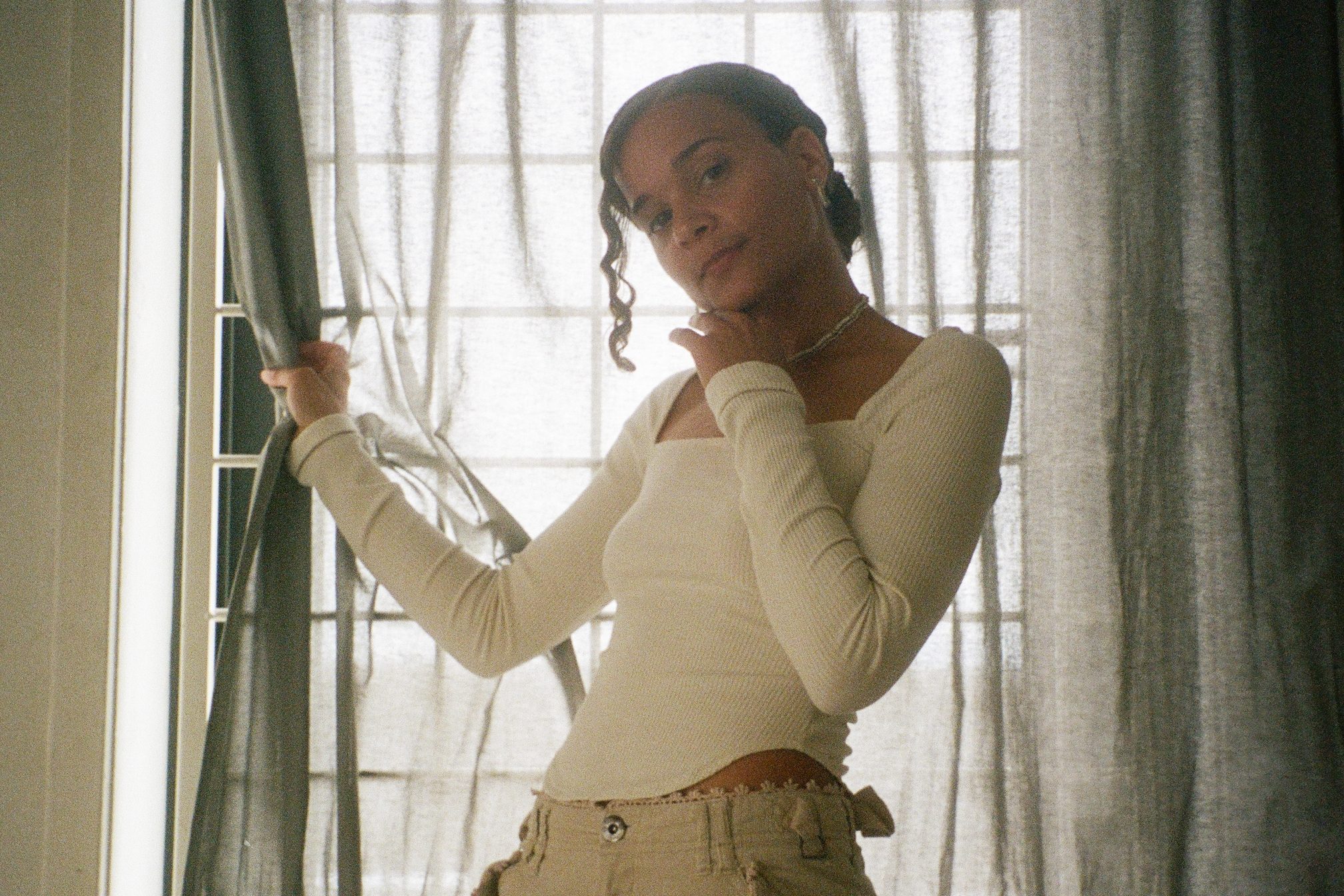 Features
Features
Fired up: How Erika de Casier grew into an R&B sensation
Upon the release of her new album 'Sensational', Erika de Casier speaks to Patrick Hinton about growing in confidence as an artist and person, fuelled by the success of her debut and impact of seismic global events
“I panicked, I got cold feet,” says Erika de Casier of the nerves she felt ahead of releasing her 2019 debut album ‘Essentials’. “I called up the people who were distributing it, like: ‘My god, I can't do this, we need to stop!’” She was used to seeing records piled high in the apartments of her friends from the Århus house collective Regelbau, and had visions of stacks of unsold vinyls taking over her home. “Luckily my friends talked me round.” Two years on from the release of the LP, multiple represses have sold out at the pre-order stage, not even cut to wax before they’re snapped up, let alone collecting dust.
Like forerunning contemporary R&B gems such as Frank Ocean’s ‘nostalgia, ULTRA’ and The Weeknd’s ‘House Of Balloons’, ‘Essentials’ was self-released, a debut full-length, and arrived perfectly formed. The former two landed in 2011 and telegraphed star potential, ahead of each artist rising up to help define the decade. Erika’s introduction in 2019 sounded just as captivating: merging the late ‘90s/early ‘00s influence of artists like Brandy, Aaliyah and Janet Jackson with styles spanning G Funk, bossa nova, breakbeat, trip hop and pop, complemented by a voice that sits somewhere between Sade and Ciara.
Her trajectory has followed a more gradual climb than being an overnight sensation, reflecting a low-key approach influenced by time spent living in Denmark — her artist bio makes reference to Janteloven, or the ‘Law of Jante’, a set of social conventions in Scandinavia often credited with fostering fulfilled and humble societies. Releasing ‘Essentials’ into the world with a sense of anxiety and low-to-no budget promotion, Erika watched on happily as it became a word-of-mouth success. “People are still finding it, which is cool. I love that it’s still growing,” she says. “It made me really happy, but it wasn't like in the beginning I was super happy, and then it faded — I’ve been able to maintain it. It's a gift that keeps on giving.”

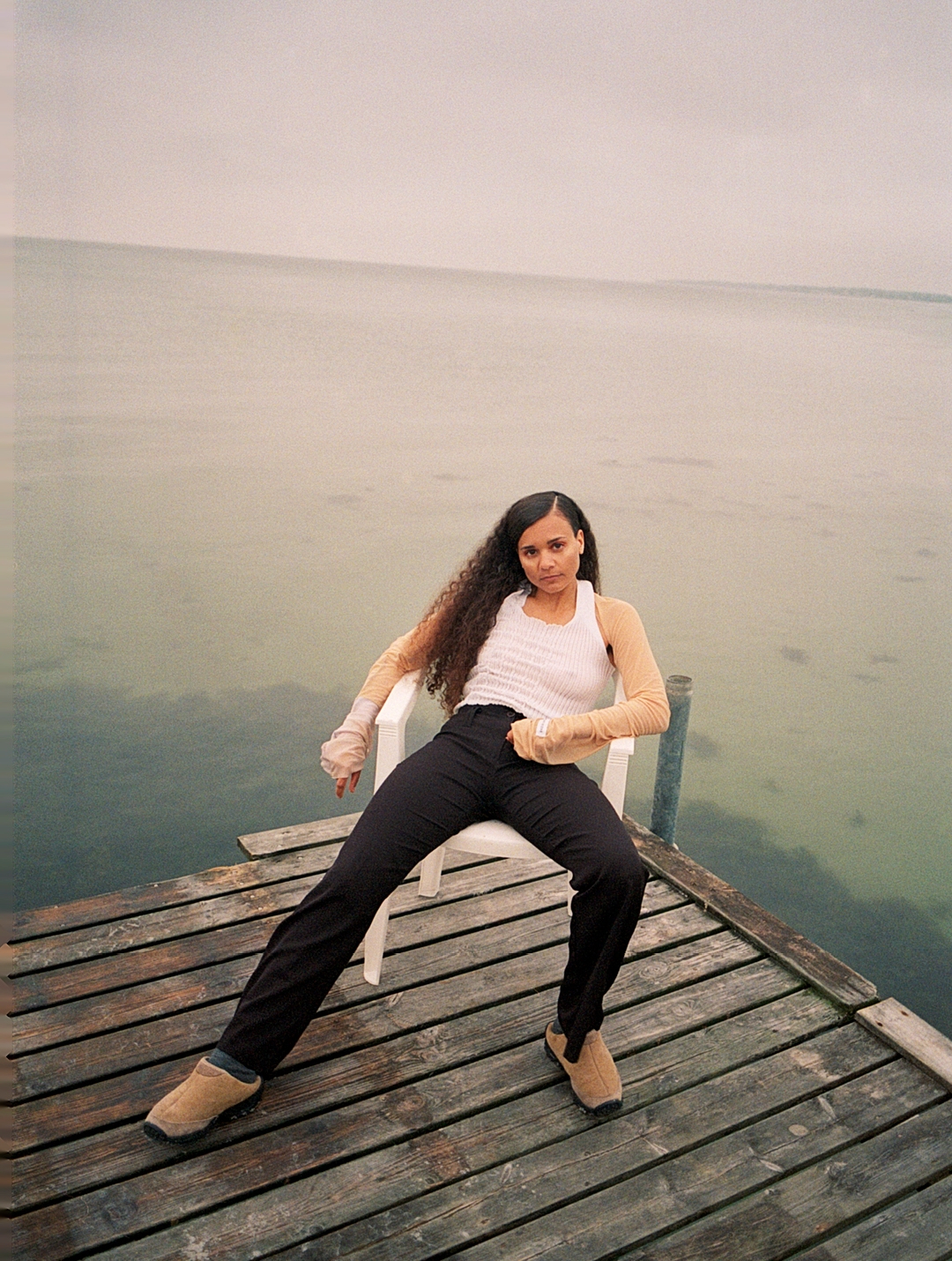
While not everyone has heard the album, I’m yet to meet someone who has and then not fallen for its charm. One fan is Dua Lipa, who hit up Erika to remix her platinum-selling single ‘Physical’. “I love the fact that she took the time to reach out to a small artist like me to say she likes my music and ask for a remix. Not just, ‘oh you have a lot of followers so you should do it’, but ‘I genuinely like what you do’,” says Erika. Even when mixing with superstars, her success has been completely organic. Fuelled by a faultless record, Erika’s steady rise in prominence over the past two years has seen her place high on multiple end of year ‘best of’ lists, sign to 4AD, and earn bookings at tastemaker festivals like SXSW in Texas and Lente Kabinet in the Netherlands, as well as a full Australian tour (albeit with those being postponed due to the pandemic). Now when you search Erika de Casier’s name on YouTube, there’s a video of Malaysian women working out to her music at a Zumba class in Shah Alam. There’s even a dedicated ‘Erika de Casier Updates’ Twitter stan account.
Read this next: Get to know Ojerime, a future hero of r'n'b
Naturally, Erika de Casier released her follow-up album ‘Sensational’ last month with the wind in her sails. “I gained more confidence in releasing 'Essentials'; people gave me such good feedback on it and were so nice. That made me feel like: ok, maybe I can do this. I think my mindset changed,” she says. Coalescing many of the same sonic influences of its predecessor in an R&B framework, lyrically, ‘Sensational’ is bolder and more assertive.
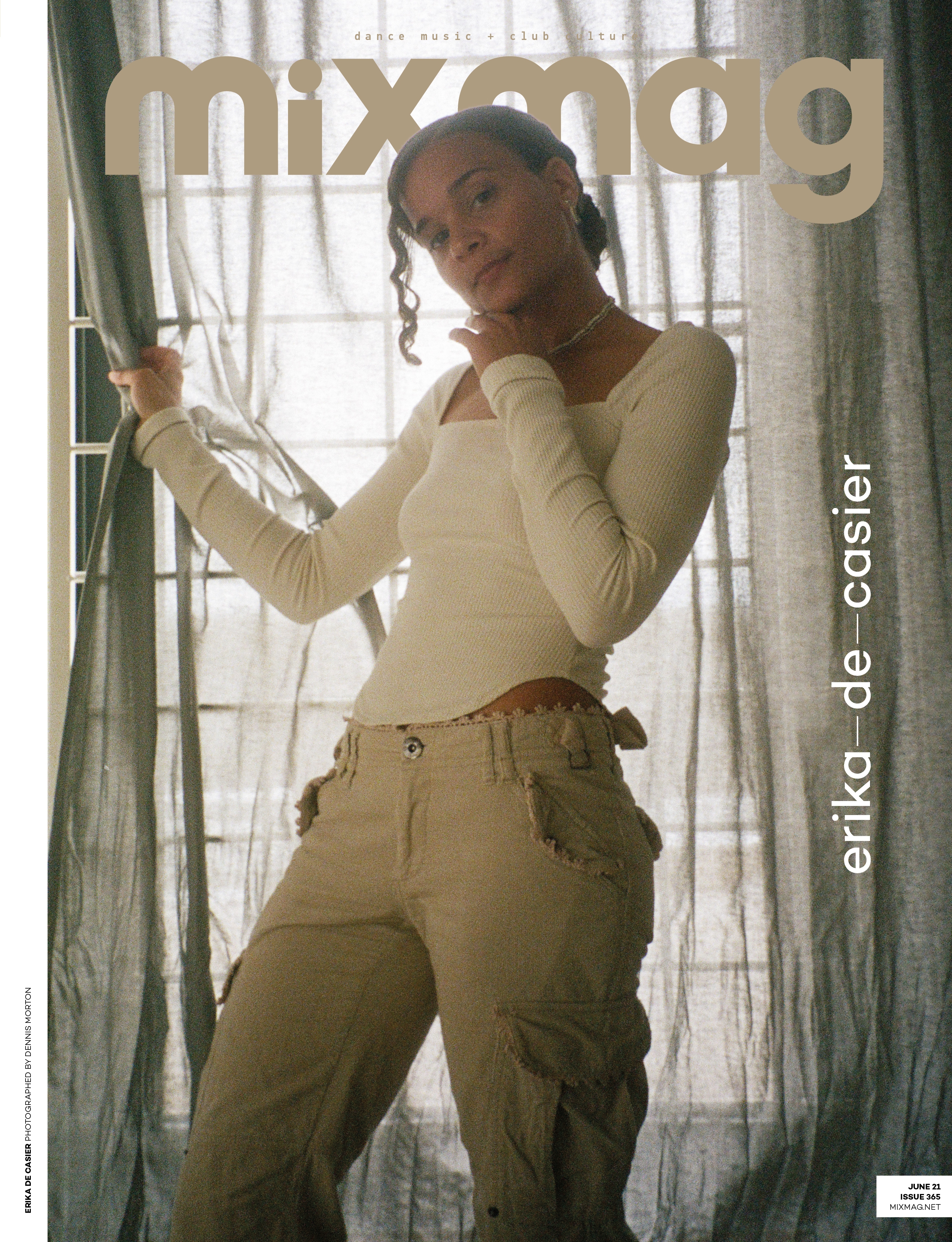
Some of Erika’s earliest experiences of music and music making were associated with seeking solace. Born in Portugal to a Belgian mother and Cape Verdean father, Erika first became obsessed with R&B when moving to the small town of Ribe in Denmark aged 8 alongside her mother and younger brother. She was unable to speak Danish so only watched MTV — music being a language she could understand. At the time Erika and her brother were also bullied for being the only mixed race children in school, and MTV was the only place she saw people with a skin tone like her own. And when she first got into producing towards the end of high school, she did so as a distraction from heartbreak. ‘Sensational’ and its emboldened lyrics reflects Erika’s growth as both an artist and a person. Where she once burrowed into music as a source of comfort, she now has a more bullish relationship with her art, using it to strengthen her spirit. The topics of love and relationships remain prominent, but scenarios where Erika felt small are reimagined in empowerment anthems. On ‘Polite’, she scolds a date for being rude to waiting staff with nods to gangsta rap bars from 2Pac and 50 Cent; on ‘All You Talk About’, she eye rolls at a suitor’s materialistic obsession: “Versace this, Versace that / Dior, Dior, you already said that / When' you gonna see I'm bored outta my mind babe”.
Read this next: 20 East Coast Hip Hop Bangers That To Go Off In The Club
“I've used my writing sessions to cope with a lot of things,” says Erika. “I definitely think it has to do with gaining confidence in what I do [as an artist], but also, in me as a human being. I haven't always been so good at standing up for myself, and maybe prioritised that I wanted the acceptance of a person more than what my own limits are. I think with 'Sensational' I've been trying to set my limits more.”

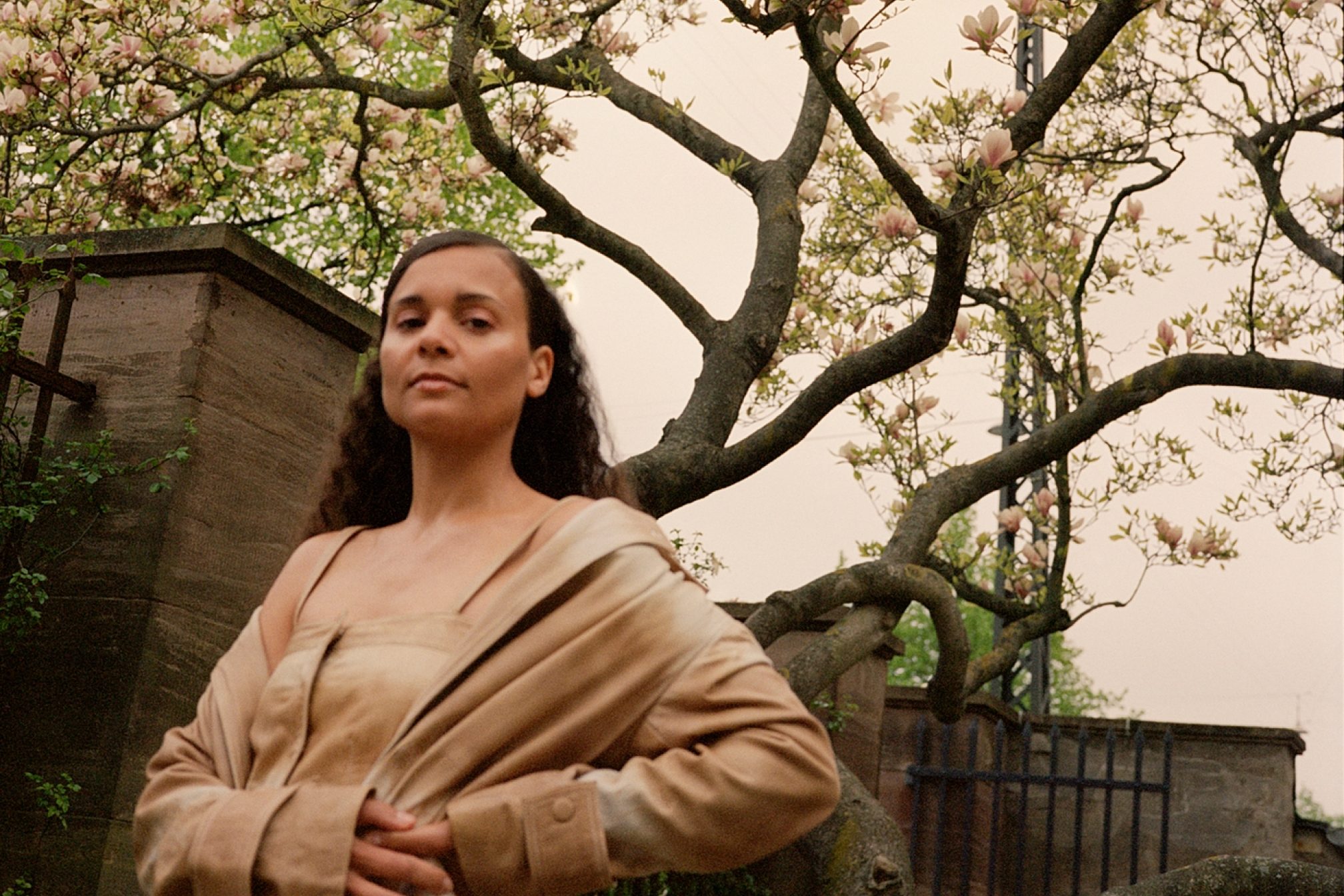
The success of ‘Essentials’ did have a challenging dimension: bringing the new pressure of an expectant fanbase hankering for more. “I had to try to let go of that pressure,” says Erika. “When I make music, I'm not thinking about the outcome, I'm trying to think: I'm having fun with this song, I can delete it if I want, nobody has to hear it ever. That gives me freedom, and if I'm in a creative block, it helps to think that way. To be like: I can make horrible songs for the next two months, nobody has to know.”
Looking at a cross section of the lyrics on each album, a reduced emphasis on seeking the approval of others comes through. On the sixth track of her debut, ‘Puppy Love’, she sings “You’re so sweet, put your butterflies around me”; on ‘Sensational’’s corresponding number she has ‘No Butterflies, No Nothing’: “No, I’m far from it” Erika sings, as a murky bassline sludges through the background. 2019 single ‘Good Time’ pleads “Spend time, spend a little while with me / I assure you there’s a lot of things to see”; while 2-step banger ‘Busy’, the penultimate track of ‘Sensational’, opens: “I'm way too busy / Don't know when I'm coming home / I know you hate being alone”. When she is interested, it’s in a much more commanding tone. Following the album’s catchiest hook on ‘Friendly’ - “You know I’m persuasive / Can’t get you out of my head, babe / And if I’m not mistaken / There’s a risk, you might just like it” - Erika then urges, “So take a bite of me / I got plenty of—”, leaving the bar hanging suggestively.
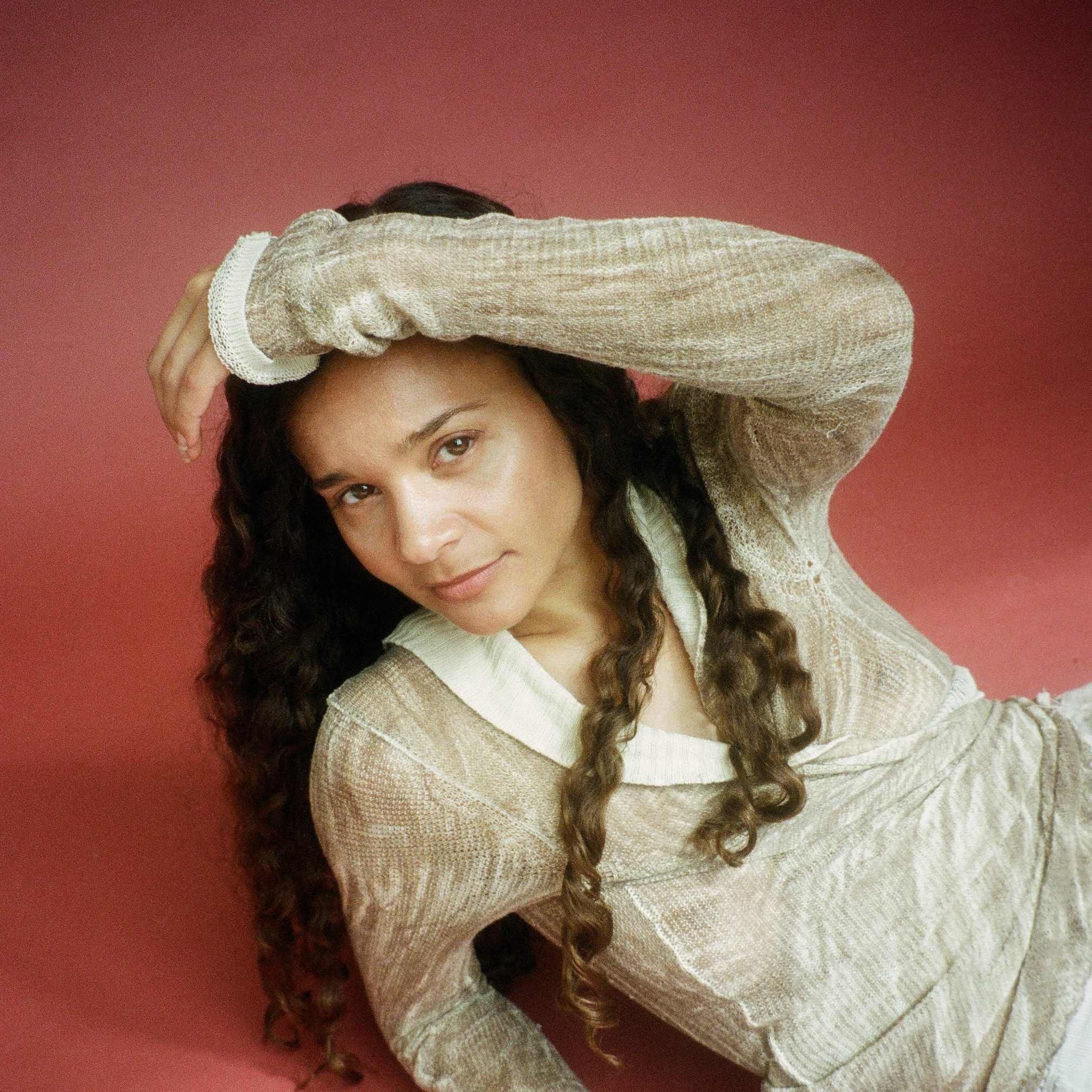
‘Sensational’ was also influenced by two of the seismic events of last year. “I wrote a lot of the songs once COVID hit, and the Black Lives Matter movement really exploded. I was dealing with a lot of different emotions,” she says. The early stages of the pandemic, when you couldn’t get tested and there was no vaccine in sight, felt particularly hopeless. “I felt angry, I felt sad, I felt a bit depressed as well — being isolated is not fun for anybody, it's not natural I feel. I went through the whole rainbow of emotions, and I think that's why 'Sensational' is almost dramatic, because it's from one end to the other,” she says.
On the other hand, the Black Lives Matter movement was invigorating, fuelling a “fire” and “need to stand up for myself” in Erika. She recalls being made to feel difficult when calling out experiences of racism growing up. “I think we all grew up with this,” she says. “In the past if I said something against it, there’s this 'don't worry, we're just kidding, don't take it personal’ response. I was standing alone, I didn't have this group of people that backed me up. Then all of a sudden I felt like the whole world was backing each other up. It definitely fired my confidence.”
Read this next: The exploitation of Black women vocalists in house music
“I was wondering in the beginning of the pandemic and Black Lives Matter movement: why am I gonna write love songs? What's the use?” Erika reflects. “I've come to see it as: it's not just love songs, it's songs about relations, songs about communications, about having good values - being polite! Songs saying: listen to me, you're not listening to me. And also seeing your own flaws, seeing what you do wrong. I also try to write from that perspective: that I'm not an angel or anything, that I can also fail, and say and think mean things.”
Alongside this perspective, an alter ego emerged: the straight haired, silk dress and long gloves wearing Bianka. The character was initially adopted during the making of the video for ‘Drama’. “I just had this feeling of: I don't want to be myself, I don't want to be in the video. But I still wanted to give it a shot. Then I ordered this wig from a party site, and when I put it on I just felt very empowered,” Erika says with a laugh. “I felt like I could do anything. It gave me so much energy.” She appears as Bianka again in the video for ‘Busy’, an image slideshow that playfully riffs off ‘girlboss’ memes, as a business suited and headset wearing Bianka draws financial graphs and photocopies documents while wearing heels, sunglasses and applying lipstick.
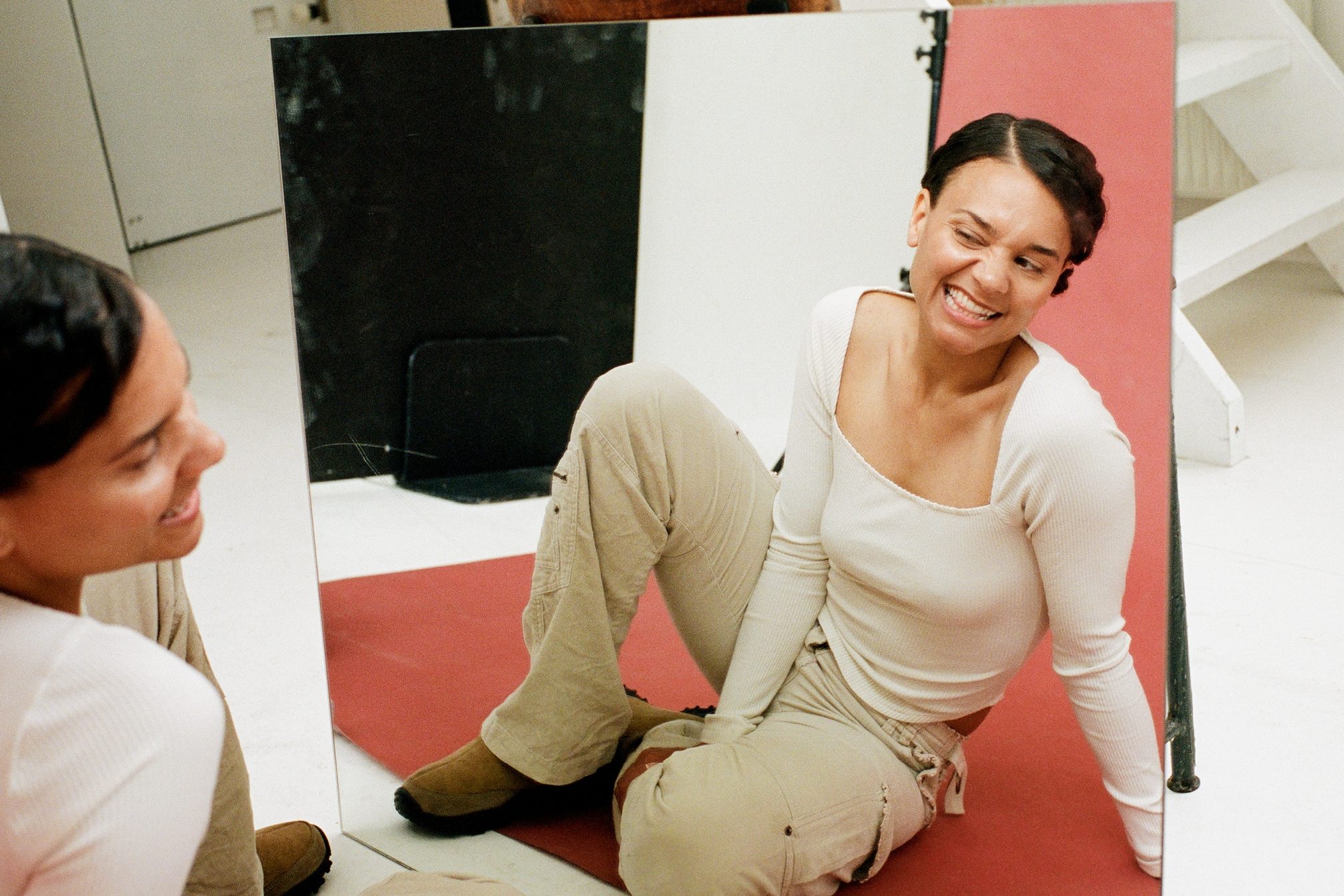
Adopting the Bianka character has helped Erika express herself more freely. “I feel like it's my internal best friend that I have that stands up for me, that thinks she's fabulous. It was a way to push that side of me out,” she says. “I think everybody can relate to that, going to a theme party for example: it's not like you have to change who you are and it's not like you become a different person, but it still feels like you get a push, a boost of something: of an energy, of a side of you that you didn't know.”
“I was very surprised that it got a lot of comments and people like 'we love Bianka!' Maybe because Bianka is not bothered,” laughs Erika. She sees the alter ego as an addition to her music rather than conceptually rooted in ‘Sensational’ like a Sasha Fierce or Ziggy Stardust is to Beyoncé and David Bowie's respective albums. “I think maybe she's there until I don't need her any more! Or until she becomes an integrated part of me without me having to put on a wig.”

Some of the mental blocks Bianka helps Erika overcome date back to growing up in Portugal, where she attended a repressive Catholic school. “You couldn't even wear a t-shirt, you have to wear long sleeves as a child. It put this weird thought in my brain that it's wrong to show skin, that it's sinful, and something you should be ashamed of,” she says. “I've been ashamed of my body my entire life. Going to the swimming pool was the worst thing I could imagine.” Moving to Denmark was a culture shock for a number of reasons, but its more liberal outlook was one of the most startling aspects for Erika. “I was super young. All of a sudden, boys and girls shower together after gym class. I was like, what! I didn't want to. My teacher couldn't understand why ... Because they're boys! 'But you're kids, nobody cares' she said. I couldn't understand that mindset, it was too free for me. No no no, this is wrong!” exclaims Erika. “And that also made me feel even more aware and even more weird, shame on top of shame. I've definitely had to work on that.”
During the process of writing ‘Sensational’ is when Denmark really started to feel like home for Erika. She moved to Berlin for five months during this time, and found herself feeling homesick. “I used to think 'I'm not from anywhere, I can go anywhere and feel at home there, I can move to Berlin now for years and years, I don't have to come back',” says Erika, who also spent a year living in the US as a teenager. “And then I actually realised I have an investment in Denmark that I don't have anywhere else.”
Read this next: Not 'just about the music': How an artist's appearance disrupts our understanding of their art
Erika completed a Master's degree at Copenhagen’s prestigious Rhythmic Music Conservatory last year, and making ‘Sensational’ marks the first time she felt assured enough to showcase her Erika de Casier music to the university’s professors. She presented parts of the album as her final project — subjecting it to a grading more nerve-wracking than your favourite music blog’s decimal scale. “Talking about your music is very intense. But I think it was very healthy for me to combine the two. For five years I studied in Conservatory doing something completely different to what I'm actually releasing, which shouldn't be that way. It should be a place where you can do whatever you want,” she says. “I used to have a wall between the Erika de Casier project, and what I do for school, which was more experimental. I thought it's too pop to present to the Music Conservatory or something. But then I realised, actually, I think some of the music Natal and I make is very complex.”
Natal Zaks, aka DJ Central, is the Danish house producer who has collaborated with Erika on the making of each of her albums. For ‘Sensational’, she wrote and produced the first demo of every track, and then worked with Zaks to finalise completed versions. “He adds to it in a way that's very organic, and true to what it is,” says Erika.
“I was asking him: why is it that we work so smoothly together? Why don't we disagree more about where it's going to go?” Erika recalls. “He said: ‘that's because I never say no. This is your project, you have a clear idea of what you want, you have a vision, let's go there!’ So it's super easy.” Under his El Trick alias, Zaks worked with DJ Sports to make a clubby mix of ‘Intimate’ for the closing track of ‘Essentials’, and Erika reveals that club remixes of ‘Sensational’ will be coming.

The return of clubbing and live music events feels tantalisingly close now, and Erika is raring to get back out on the road. “I'm very excited to do that again,” she says, reflecting diplomatically on last year’s upheaval: “I was super disappointed and sad about [tour dates being postponed], but the whole world is experiencing this, so I didn't feel the right to make a big deal out of it; I'm not gonna pity myself. It's not that it's not going to happen, it's just postponed. We have to wait a little bit for everybody's sake. Then we will start again.”
One of Erika’s earliest gigs in London, at Tottenham’s Five Miles in late 2019, was marred by sound problems, but stands as a cherished memory for the sold out crowd’s fervent response. “I was just blown away. It's so clear in my memory, because people were singing the songs for the first time. Screaming them back at me, so much that I couldn't hear myself. I felt so much euphoria, and at the same time, I knew that the sound was horrible. I was like: I can't give this to these people! They know all the songs and I'm giving them horrible sound. I got angry at the sound guy!” she says with an apologetic laugh. “I remember after the concert I just started crying, of both relief, of happiness, of frustration. I couldn't even help myself going off the stage, you know when you can just feel it burst.” As we hopefully head towards the final stages of the pandemic, there are wells of pent up emotions to be released. As outlets go, it’s hard to think of much better than being in an ecstatic crowd, singing your heart out to the sensational new sounds of Erika de Casier.
'Sensational' is out now via 4AD, get it here
Patrick Hinton is Mixmag's Digital Editor, follow him on Twitter


